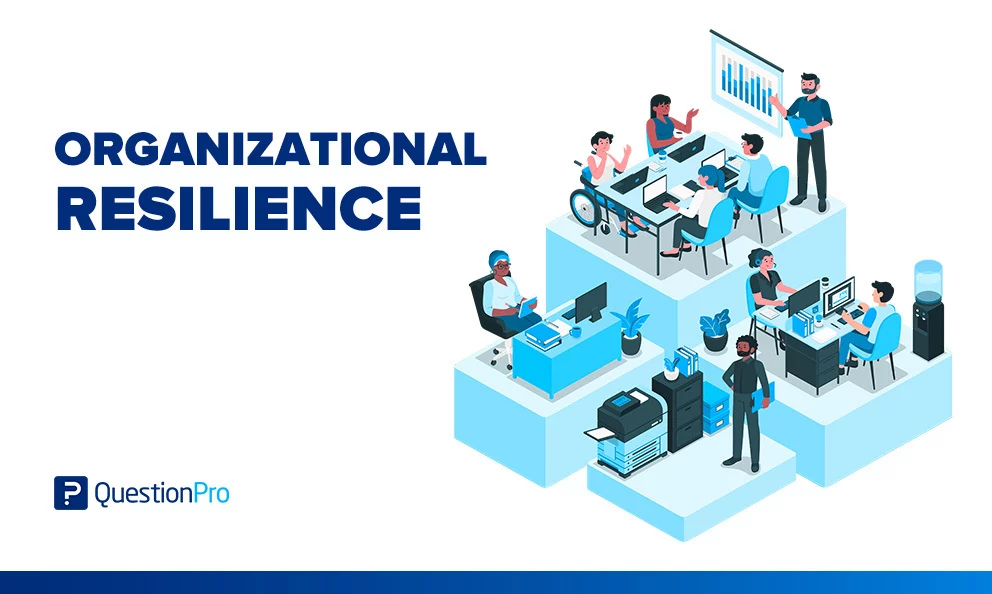Organisational resilience is the ability of a company to anticipate, plan and respond to difficulties when they occur.
Resilient organizations are those that recover and are resistant to impacts through good risk management, as well as adaptable, elastic and sustainable.
Associate director, at Association of International Certified Professional Accountants, Nigeria, Ijeoma Anadozie, said “operating in today’s financial environment can be challenging. The connected nature of our global market means few businesses, whether a small company or an international organisation go untouched by worldwide political, climate and economic threats.
“But there is a quality you can cultivate to help you weather crises: resilience. Organisations cultivating resilience in their teams can reduce the effects of major disruption events, such as the COVID-19 pandemic. But resilience provides more than just threat management; if prepared, resilient companies can benefit from disruption.”
Anadozie pointed organisational resilience starts with people, hiring staff to match your company’s specific short- and long-term business needs can bolster resilience; addressing the skills gaps of current staff, particularly in digital competencies, is central to constructing resilience, using data to inform your decisions, choosing the right technology, and increasing productivity
Building Organisational Resilience
Building a resilient organisation is a long process of change.
Effective Leadership: One of the most important factors driving organisational culture is strong leadership. Resilient cultures start with committed leaders who understand and support employees. The lack of support from managers creates the risk that the workforce will be disengaged and, therefore, that the company culture is weak. One way to create a stronger connection between leaders and employees is to provide harmonious top-down and horizontal communication. This will create a strong bond between employees and leaders, regardless of whether they work in the same office or are in a different time zone. Leaders of resilient cultures must take personal responsibility for effectively involving their employees and, during periods of transition, must make the tough decisions to protect teams.
Transparency and communication; after gaining the support of leaders, your organisation must make sure to promote transparency and, of course, apply it to all internal communications. Resilient cultures understand that communication is a powerful tool for driving behavior in the organisation and creates open conversations around ethics and values.
Safe and secure work communities; the workplace culture can be stressful and overwhelming, especially when there are changes or disturbances. Build a safer and more social work environment. Employees are constantly connecting and collaborating, so make sure you give them a place where they can share their interests and create social connections with their colleagues.
Innovation In Knowledge Management: Organisational resilience is driven by performance and adoption. But how can we achieve high performance rates when we do not adapt to innovations? Knowledge management is a very important pillar in building resilience, but organisations often fail to successfully integrate innovations. Results are difficult to measure and organisations prefer to focus their efforts on more tangible elements. Technological advances offer numerous opportunities to design agile and open knowledge management systems. Using cloud technologies, knowledge sharing is easier and reaches a broader base of employees, while at the same time they can safely store knowledge for many future generations.Consider investing in innovation that can facilitate change processes and prepare your business for turbulent times.
Complexity And Responsibility: Today, many companies operate in multiple time zones, geographies, and departments. To function effectively at this level of organisational complexity, it is necessary to increase cooperation and information sharing, while establishing shared responsibilities across the team. Equip your company with digital collaboration tools created to help international companies looking to centralise their efforts. Resilient cultures understand the benefits of shared responsibility and empowered teams. This can prepare employees for crisis situations by establishing a clear understanding and a strong sense of responsibility.
Meanwhile, organizational resilience gives employee the ability to successfully adapt to threats to organization sustainability. Building a resilient culture takes time, but the rewards for any company are vast.
The results may not come as quickly as the next challenge, but it must not be forgotten that the most important thing is to learn to adapt to any situation. And only then can employee truly become a resilient and sustainable organization.





